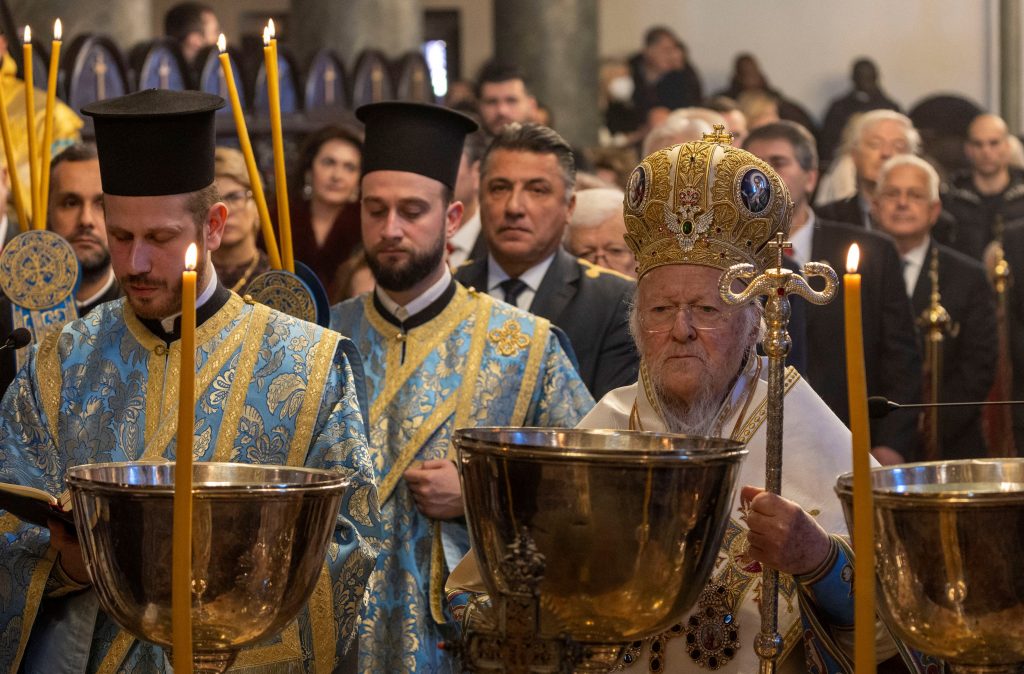Epiphany - ENA English
Epiphany

Addis Ababa, January 18, 2025 (ENA)—Epiphany commemorates the baptism of Jesus Christ by John the Baptist in the River Jordan. The term 'Epiphany' comes from the Greek word meaning 'to reveal,' as it marks the moment when the baby Jesus was 'revealed' to the world. This festival is celebrated in various ways across the globe.
Greece:
In Greece, Epiphany is also known as the Celebration of the Lights or "ta fota." The 2025 Epiphany was celebrated a few days ago. According to the Greek Orthodox calendar, ta fota is held on January 6th and is one of the most sacred and holiest feast days. On the eve of Epiphany, Greek children participate in a cherished tradition by singing special holiday songs that symbolically convey the message of Jesus' baptism. Spectators often reward these children with coins for their efforts.
The main event, known as the "Blessing of the Waters," takes place on January 6th. People gather around bodies of water, such as seas, lakes, or rivers, for a symbolic event that involves swimming in the chilly waters of January. Priests say prayers around the water and throw a cross into the water. Children dive into the water in search of the cross. The first one to grab the cross receives a blessing from the priest, and good luck is anticipated for the upcoming year.
Russia:
The Russian Orthodox Church celebrates Epiphany on January 19th, with festivities traditionally beginning the day before. It is a major celebration in Russia. In the Orthodox Church, this holiday marks the baptism of Jesus by John the Baptist. Russians believe that the water becomes holy and gains divine power during Epiphany.
One of the most unique features of the Epiphany celebration in Russia is the ritual bathing in frigid waters. As the holiday approaches, large ice holes are cut in the shape of a cross into frozen rivers, lakes, and artificial reservoirs. Additionally, special fountains or dunking booths may be prepared in city centers and town plazas. Worshippers are expected to immerse themselves three times to symbolize the Holy Trinity. Despite the cold water, many believers participate in this ritual, as they believe the water has the power to purify them from sins.
Ethiopia:
Ethiopian Epiphany, called Timket, is the most colorful and spectacular holiday, which has been inscribed by UNESCO as an intangible world heritage. Like in other parts of the world, the festival is celebrated to commemorate the baptism of Jesus Christ by John the Baptist. However, the rituals and traditions are quite unique and amazing. Ethiopian Epiphany is a must-visit festival.
The festival of Timket or Epiphany is celebrated across Ethiopia on January 19th or 20th in leap years. The commemoration starts on the eve of the main festival on January 18th. The eve is known as Ketera, which means blocking the flow of water for the blessing of the participants.
On Ketera, large crowds escort their district's Tabot (replicas of the Ark of the Covenant) to a place called Timkete-Bahir, which may be a pool, river, or artificial reservoir where people are baptized. Deacons and priests present their unique and attractive religious songs, and beyond these, Ethiopians also showcase their traditional songs and dances. Once the Tabots are placed in their designated spots, people spend the night attending long prayers.
The following day, January 19th, marks the main festival of Ethiopian Epiphany. The celebration starts early in the morning as people gather at Timkete-Bahir to be baptized. After the baptism of worshippers is completed, the Tabots are returned to their respective churches. The religious songs, traditional songs, and dances continue as the Tabots make their way back, maintaining the same vibrant spirit as when they were brought to Timkete-Bahir. Ethiopia’s unique, colorful Epiphany continues to attract thousands of foreign tourists from all over the world.